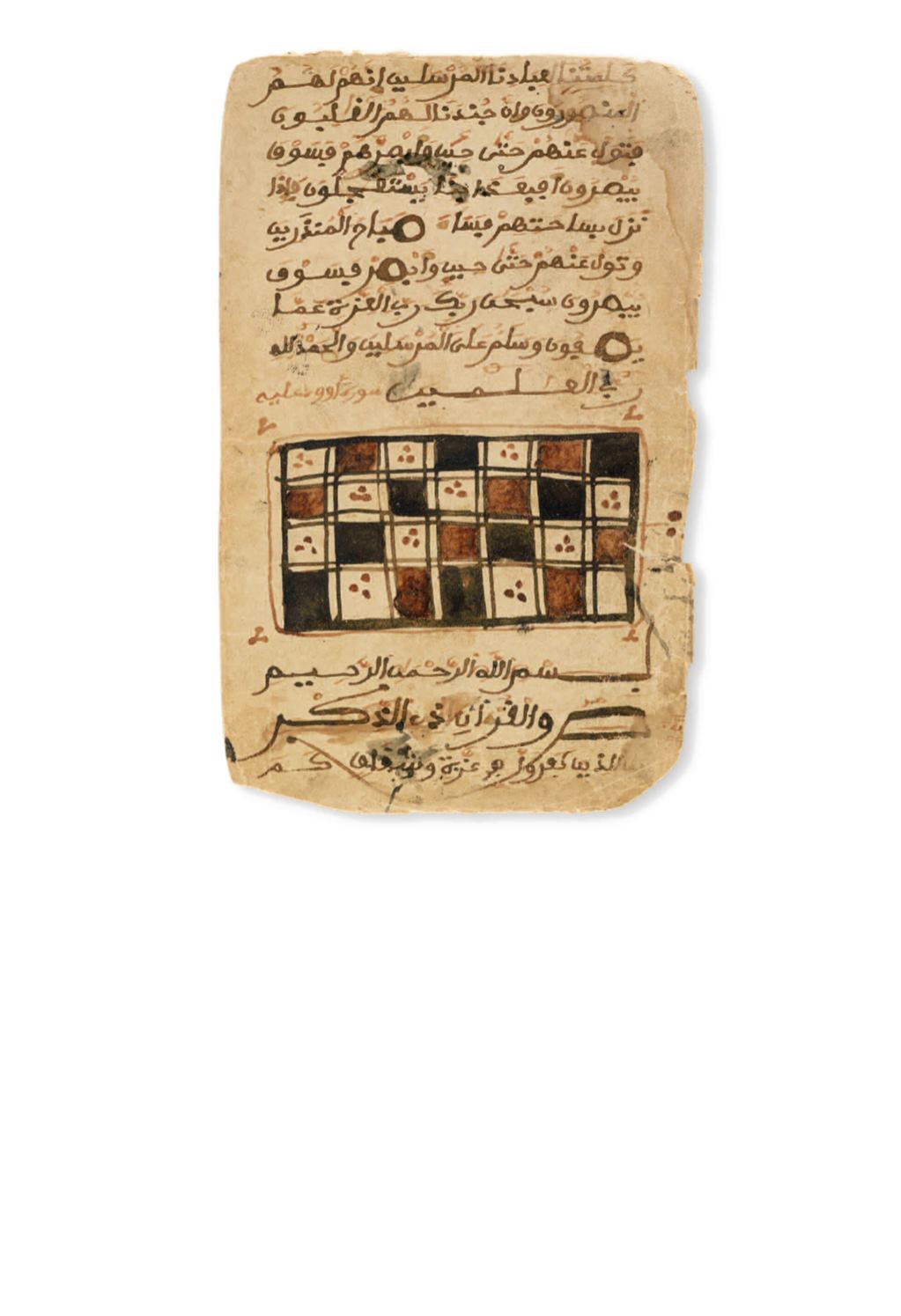

LOT
280,
continued
AN EXCEEDINGLY RARE MANUSCRIPT QUR
’
AN FROM THE YATTARA FAMILY LIBRARY
,
ONE OF TIM
-
BUKTU
’
S ORIGINAL FOUNDING FAMILIES
.
The widely held theory that sub-Saharan Africans had no
written language, and therefore no recorded history was a perfect rationale for slavery. For a couple of centuries,
theologians and apologists for the slave-trade exploited this argument. However, abolitionist Theodore Dwight
Weld tracked down and identified a number of literate slaves. The most important of these was the North
Carolinian slave Omar ibn Said, a Fullah from Senegal whose manuscript narrative (in Arabic) was sold in
these rooms in 1996.
Timbuktu was a thriving culture centered in what is today’s Mali, having its beginnings around the 10th cen-
tury. From there, Moslem traders carried Islam and a written culture outward into Senegal and West Africa.
Long before the existence of Oxford or Cambridge, the scholars of the University of Sankore and other cultural
centers were writing and copying thousands of manuscripts on science, astronomy, astrology, theology, mathe-
matics, Islamic jurisprudence and common law. In Timbuktu,African merchants from Djenne (in Mali) traded
with the Kel Tamasheq nomads and the Arabs from the north in markets that were legendary for the variety of
their goods.The prosperity of the city attracted Africans from the south and Arab scholars from the north.This
unique combination of scholarship and business acumen were the cornerstones that made Timbuktu a city of
wealth and knowledge. Books were the refined work of black and Arab scholars in the city’s libraries.The writ-
ing and copying of the holy book of the Qur’an was one of the most important jobs of Timbuktu’s scribes.









